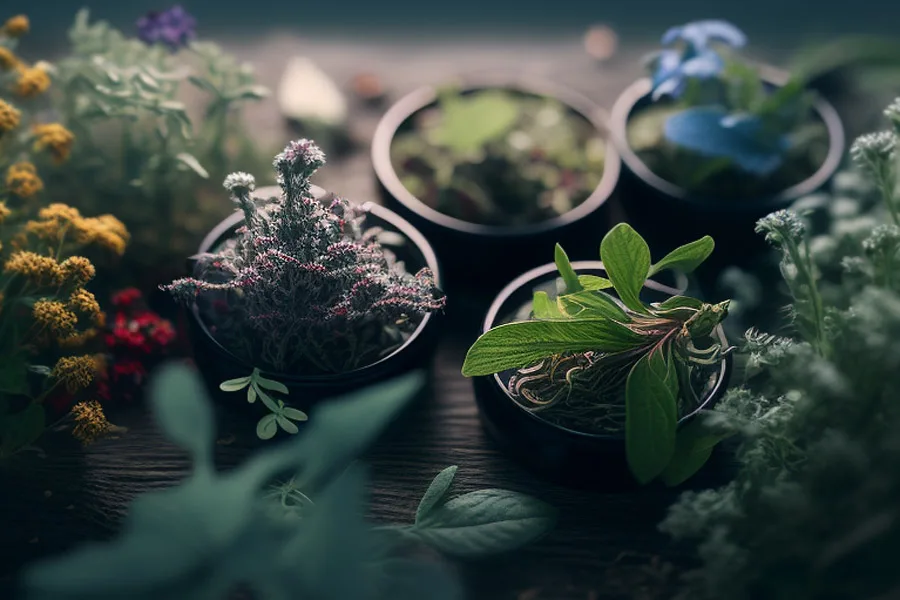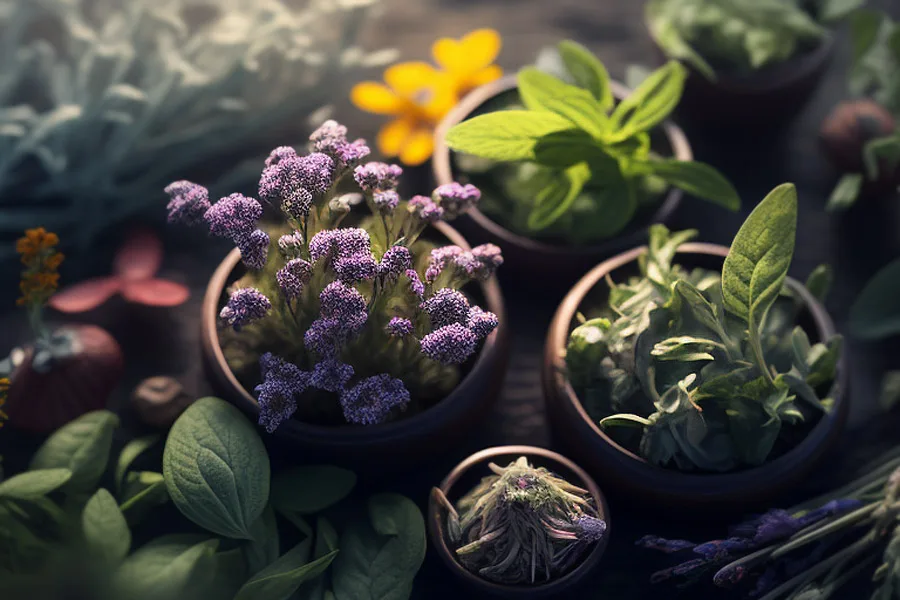According to the World Health Organization (WHO), the term “herbal medicines” includes “herbs and herbal materials, herbal preparations and finished herbal products that contain parts of plants, other plant materials, or combinations as active ingredients.” with the defining so-called “active ingredients” as “the ingredients of herbal medicines with a therapeutic activity where the active ingredients have been identified, and if adequate analytical methods are available, the medicinal preparation should be standardized to contain a defined amount of the active ingredients”. If it is impossible to extract and measure the exact ingredient, then the whole herbal product is considered to be one.
Studies show that over 80% of people worldwide use herbal medicines for the prevention and treatment of various conditions, to feel better, to have more energy, etc. And herbal over-the-counter drugs and supplements are commonly believed to be milder in effect and safer due to their natural origin, which is why they are often consumed by pregnant women, especially for treating colds and headaches. And that is without mentioning the use of herbs as teas, spices, or food.
However, there are very important reasons for you not to use products that contain one or another herb during pregnancy without a previous consultation with medical professionals that guide you through the pregnancy.
The hidden danger of plants
Herbal products can be as powerful pharmacologically as synthesized drugs. In fact, when using homemade herbal medicines, you never know, which dose of its active ingredient you are getting, because its concentration can be very different. The herbs you take may cause an overdose, adverse effects, or even antagonize the medications prescripted for you by your health care specialist.
Many herbal remedies can go through the placenta barrier and affect the baby directly. And many of them are able to recourse your pregnancy: start internal bleeding, cause cramps, speed up the start of contractions and induce labor, etc. Also, there are very few studies on the effects that herbal products have on pregnant women. This is why the FDA urges all future mothers to refrain from use of the “natural” medications in order to have a healthy pregnancy and avoid additional risks of complications.
The herbs to use and not to use

The Natural Medicines Database differentiates Likely Safe or Possibly Safe herbal products which are relatively safe to use, sometimes with a certain condition, and Possibly Unsafe, Likely Unsafe, and Unsafe which it is better to avoid during pregnancy.
The recommended and commonly used herbs
Listed below are the plants, the use of which can be somewhat beneficial during pregnancy.
- Red Raspberry Leaf is very rich in iron and is known to be capable of increasing lactation, ease labor pain, and reduce nausea when pregnant. Some studies claim that it can significantly reduce labor complications and the need for intervention. Raspberry leaf tea is often advertised as a pregnancy tea that contributes to uterine’s health.
- Peppermint Leaf in teas, salads, desserts and such, is wonderful in relieving nausea/morning sickness and flatulence.
- Ginger Root is an ingredient of numerous supplements designed to reduce nausea and vomiting.
- Black or Blond Psyllium, when taken appropriately with the proper liquid intake, act as a mild laxative and improve digestion.
- Garlic when used with foods only, not in a form of supplements.
- Rosemary, Sage, Basil, and Parsley, only when used as seasoning to add up spice and flavor.
- Oats improves skin condition and, due to high content of magnesium, reduces stress, anxiety, and spasms.
The contraindicated herbs and herb products
And here is the list of herbs to avoid when you are expecting a child.
- Gotu kola, or Centela, the scientific name is Centella asiatica. The processed steams and leaves of the plant have an energizing effect and come as a supplement in tea or capsules. May induce uterine contractions.
- Dong Quai, the root also known as Angélica china, Dang gui, Chinese angelica, or, in Latin, Angelica sinensis. The tea and capsules with it affect the stimulation and relaxation of the uterus.
- Blue cohosh, Cohosh azul, squaw root aka Caulophyllum thalictroides, may induce labor and is toxic to fetus.
- Actaea racemosa aka Cohosh negro, or Black cohosh. May induce uterine contractions.
- Passiflora incarnata, also known as Flor de la pasión, Passion flower is a powerful sedative flower, contraindicated to pregnant due to the uterine stimulation.
- Korean and American Ginseng, Panax ginseng and Panax quinquefolius, accordingly, while rich in vitamins and energizing, were not studied for pregnant women, so their safety is not proven.
- Rhubarb Root or Rheum, often found in pies and other desserts, may induce uterine contractions.
- Ricino, Castor oil, palma Christi, the seeds and oil of Ricinus communis, while being an effective laxative, may induce labor, and the seed themselves are very toxic.
Conclusions

Plants are an ancient companion of the human, used for food and healing, and humanity is used to thinking about the natural remedies as something mild and very safe. However, a person does not always know what effects they can be subject to when taking herbal tea or supplement, the potency of said effects, and the consequences for the organism.
When talking about pregnancy, the woman should be extremely careful, because everything she takes affects her baby one way or another. The irresponsible or uneducated use of herbal products may cause serious complications, endanger both the mother and the child and even cause miscarriage. This is why the best solution when looking for a treatment for a cold, stress, digestive issues, or headaches is not self-medication with herbal products. Better contact your doctor, midwife, or another healthcare provider who will surely assist you in finding the most safe and effective solution.
If you are only revising your refrigerator and looking in doubt at some greenery, do not worry. The quantity of active ingredients in plants that you use as seasoning is not likely to have a pharmaceutically significant effect, so you are going to be perfectly fine.




